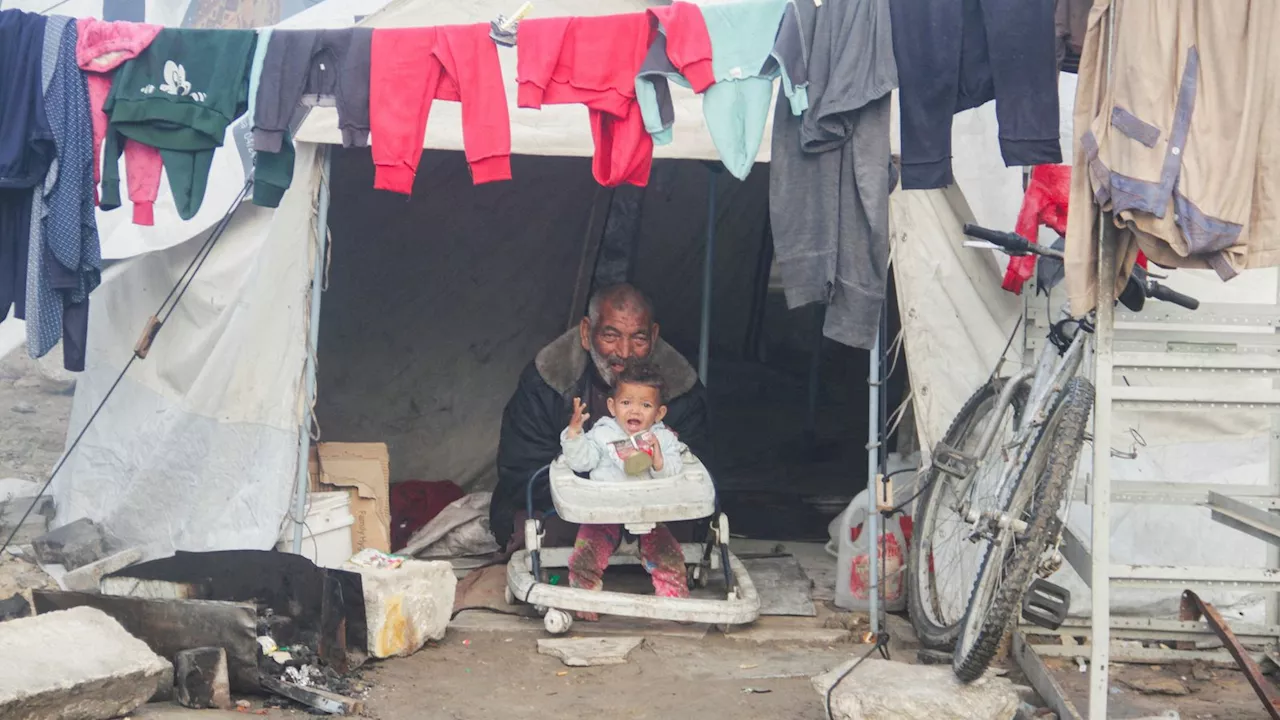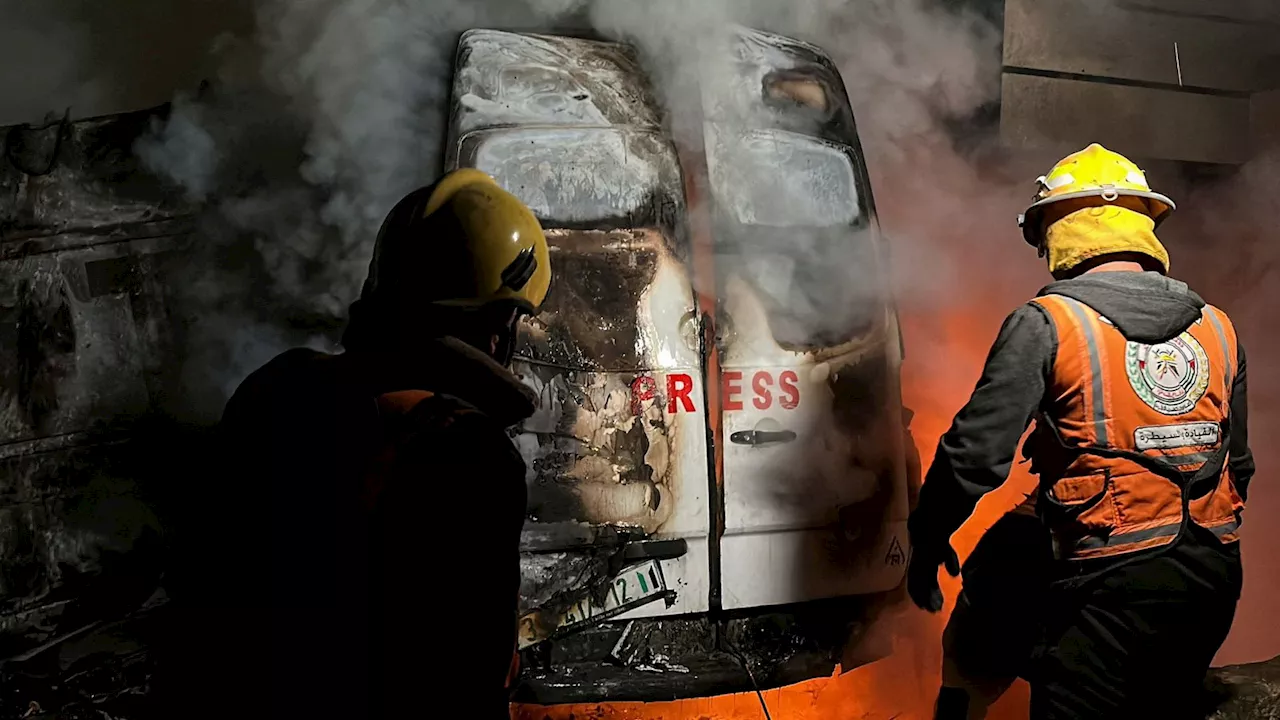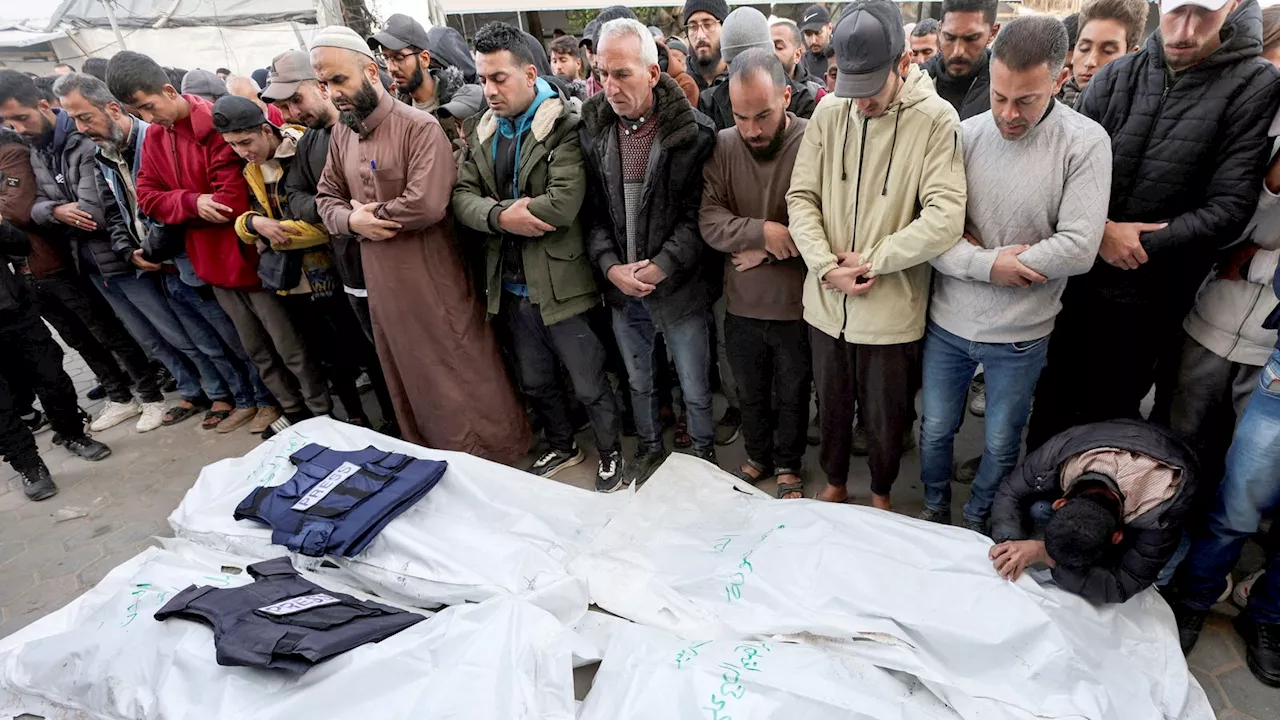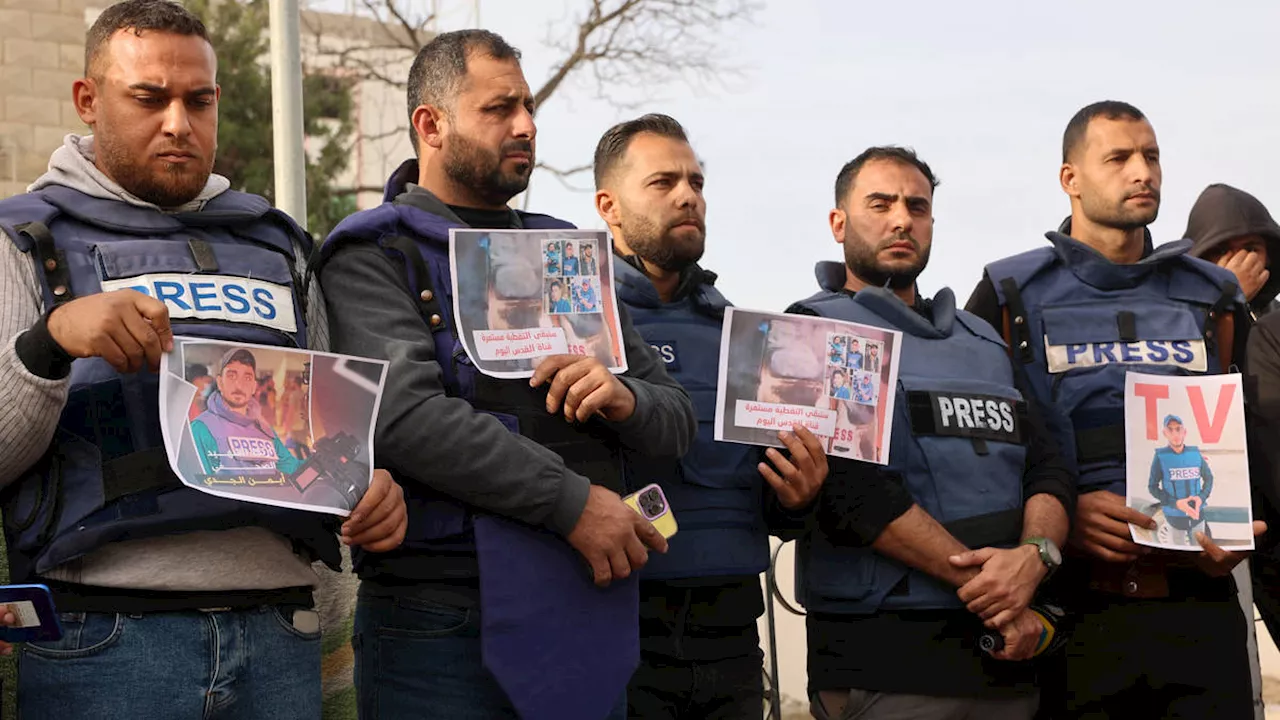This article explores the complex issue of whether the Israeli-Palestinian conflict constitutes genocide, drawing parallels to the horrors of the Holocaust and the ongoing struggle to prevent atrocities.
As the fragile ceasefire in Gaza begins and ahead of next Monday’s 80th anniversary of Auschwitz’s liberation, I’ve been reading my great-uncle Leo Kuper’s 1981 book, Genocide. I remember Leo as a gentle old man, pottering around his book-filled bungalow in Los Angeles. A Jewish sociologist born in Johannesburg in 1908, he served as a British intelligence officer in the second world war, then joined the generation of scholars who elaborated the concept of “genocide”.
Galvanised by the Holocaust, they hoped to prevent future atrocities. Leo’s book is both historical and forward-looking. “Can one doubt,” he wrote, “the possibility in the Middle East of a genocidal conflict, coloured by religious difference, with an international component chillingly reminiscent of the Nazi era?” I wonder if he could have imagined a time when many scholars in his field would conclude that Israel has committed genocide. The UN’s Convention on Genocide, adopted in 1948, defines it as “acts committed with intent to destroy, in whole or in part, a national, ethnical, racial or religious group”. Note the words “in part”. Killing only part of a group, as in the Bosnian-Serb murder of 8,372 Bosnian Muslims at Srebrenica in 1995, is also genocide. The convention obliges its 153 state signatories “to prevent and to punish” genocides. They mostly haven’t. But I cite the convention because it is an internationally agreed legal definition of genocide that can help us go beyond the shouting match over Gaza. Israel exists largely to protect Jews from genocide. The historian James McAuley, who is writing a book on Holocaust memory, says, “It’s difficult not to draw a Zionist conclusion from Auschwitz.” The cry after Auschwitz was “Never again”. To Jews like my great-uncle Leo, that meant “Never again to anyone”. But to Israeli prime minister Benjamin Netanyahu, it seems to mean “Never again to us”. Hamas’s slaughter of more than 1,200 people on October 7 2023 reran Jewish history’s central nightmare. As I write this, Hamas still holds about 90 hostages taken that day. But one side’s genocide, or crimes against humanity, doesn’t justify another’s. A study in the medical journal The Lancet estimates there were 64,260 Palestinian deaths from traumatic injury between October 7 2023 and June 30 2024. That’s 41 per cent more than reported by Gaza’s Hamas-controlled health ministry. The International Criminal Court has charged Netanyahu with war crimes and crimes against humanity. Israel argues it killed in self-defence. Leo addressed that issue. In 1915, some Turks justified deporting (and later murdering) Armenians by accusing them of “supporting the country’s enemies”. Leo wrote that this might justify the “disarming” or “internment” of Armenians, but not “massacres”. Intent to commit genocide is usually unprovable. Killing a group as a byproduct of a different aim, such as gaining control of oilfields, isn’t legally genocide. But the Holocaust scholar Raz Segal says multiple Israeli leaders have made “explicit and unashamed statements of intent to destroy”. For instance, former defence minister Yoav Gallant said, “We are fighting human animals, and we are acting accordingly.” President Isaac Herzog called “an entire nation” “responsible” for Hamas’s attack. Many scholars, including Israeli Holocaust historians Amos Goldberg and Omer Bartov, say Israel committed genocide. In our era in which shared truths are lacking, Israel’s defenders dismiss accusers as antisemites. That claim is unfalsifiable. Nobody can prove that critics weren’t antisemitic. Perhaps some were. That isn’t the question. It’s whether Israel’s acts meet the legal definition of genocide. If so, we again failed to intervene. Haunting photographs taken by a British reconnaissance plane in 1944 show smoke rising from Auschwitz’s crematoria. The Allies knew but didn’t act. That almost always happens. Leo died in May 1994, during Rwanda’s genocide. He despaired of every failure to stop atrocities, yet never became a cynic. He co-founded the NGO International Alert to provide early warning of ethnic violence. Decades before the ICC’s creation in 2002, he dreamt of a court that could try offenders. Today, ever more states claim “universal jurisdiction” to prosecute genocide, war crimes and crimes against humanity, wherever they happen. In 2022, a German court convicted a 97-year-old former secretary in a Nazi camp as an accessory to more than 10,000 murders. Justice sometimes works slowly. Every tragedy is unique. The Holocaust’s death toll was nearly 100 times Gaza’s. But law is law
GENOCIDE ISRAEL PALESTINE INTERNATIONAL LAW HOLOCAUST WAR CRIMES
United Kingdom Latest News, United Kingdom Headlines
Similar News:You can also read news stories similar to this one that we have collected from other news sources.
 Gaza ceasefire deal latest: Israeli minister threatens to resign over Gaza ceasefire dealAfter Benjamin Netanyahu accused Hamas of 'blackmail' and delayed an Israeli cabinet vote on the ceasefire, the group says the Israeli military has struck a location in Gaza where one of the female hostages is held. Follow the latest.
Gaza ceasefire deal latest: Israeli minister threatens to resign over Gaza ceasefire dealAfter Benjamin Netanyahu accused Hamas of 'blackmail' and delayed an Israeli cabinet vote on the ceasefire, the group says the Israeli military has struck a location in Gaza where one of the female hostages is held. Follow the latest.
Read more »
 Gaza latest: Israeli military says it has struck 'terror targets' in Gaza after ceasefire delayedThe Gaza ceasefire which was due to start at 6.30am today has been delayed - with Israel blaming Hamas for not providing a list of the hostages up for release. Hamas said the delay in disclosing the names was due to 'technical field reasons'.
Gaza latest: Israeli military says it has struck 'terror targets' in Gaza after ceasefire delayedThe Gaza ceasefire which was due to start at 6.30am today has been delayed - with Israel blaming Hamas for not providing a list of the hostages up for release. Hamas said the delay in disclosing the names was due to 'technical field reasons'.
Read more »
 'Her nightmare in Gaza is over', says mother of British-Israeli woman released in Gaza ceasefireEmily Damari's mother made an emotional statement thanking those that supported her daughter while she was held hostage, saying her 'nightmare in Gaza is over'.
'Her nightmare in Gaza is over', says mother of British-Israeli woman released in Gaza ceasefireEmily Damari's mother made an emotional statement thanking those that supported her daughter while she was held hostage, saying her 'nightmare in Gaza is over'.
Read more »
 Israeli Airstrikes Kill at Least 10 in Gaza, Including Five JournalistsIsraeli airstrikes in Gaza have killed at least 10 people, including five journalists, while a three-week-old baby girl died from freezing temperatures in a tent camp.
Israeli Airstrikes Kill at Least 10 in Gaza, Including Five JournalistsIsraeli airstrikes in Gaza have killed at least 10 people, including five journalists, while a three-week-old baby girl died from freezing temperatures in a tent camp.
Read more »
 Five Journalists Killed in Israeli Airstrike in GazaA funeral was held for five journalists killed in an Israeli airstrike near a hospital in Gaza. This tragic incident occurred amidst escalating violence, resulting in numerous civilian casualties, including a three-week-old baby who died from exposure.
Five Journalists Killed in Israeli Airstrike in GazaA funeral was held for five journalists killed in an Israeli airstrike near a hospital in Gaza. This tragic incident occurred amidst escalating violence, resulting in numerous civilian casualties, including a three-week-old baby who died from exposure.
Read more »
 Palestinian journalists killed in Israeli airstrike outside hospital in Gaza Strip, Health Ministry claimsAn Israeli strike has killed five Palestinian journalists outside a hospital in the Gaza Strip, the Health Ministry said.
Palestinian journalists killed in Israeli airstrike outside hospital in Gaza Strip, Health Ministry claimsAn Israeli strike has killed five Palestinian journalists outside a hospital in the Gaza Strip, the Health Ministry said.
Read more »
